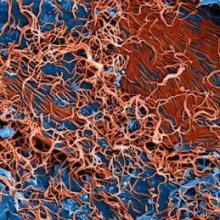Thomas Eric Duncan, a Liberian man who has become the face of Ebola in the United States, died on Wednesday morning at Texas Health Presbyterian Hospital, more than a week after he became the first person to be diagnosed with the virus here.
His body will be handled and cremated in accordance to the Centers for Disease Control and Prevention guidelines, said the Texas Department of State Health Services in a statement.
Mr. Duncan’s death further highlights “what a deadly enemy Ebola is and how important it is to protect Americans and to stop Ebola at its source in West Africa,” said CDC Director Dr. Thomas Frieden, in an afternoon news briefing on Wednesday.
Like more than 36,000 individuals leaving West Africa in the last 2 months, Mr. Duncan filled out a questionnaire and had his temperature taken before he boarded a plane to visit his family in Dallas.
For more layers of protection, federal officials ramped up their efforts on Wednesday by adding entry screening for those arriving from the affected West African countries at five U.S. airports
New York’s JFK International Airport, Washington-Dulles, Newark, Chicago-O’Hare, and Atlanta International airports receive more than 94% of travelers from Guinea, Liberia, and Sierra Leone. Passengers arriving from the three affected countries to these airports will be screened there. If they have symptoms or are suspected of having exposure to Ebola, they will be referred to a public health authority. Travelers with no symptoms will be asked to provide contact information and to complete a daily temperature log. The screening will begin as early as this Saturday.
CDC has also issued level 3 travel advisories for Guinea, Liberia, Sierra Leone, asking Americans to avoid nonessential trips to these regions.
Meanwhile, health professionals should be thinking about the possibility of Ebola and be able to identify who might have it and isolate and test them.
“Identification, diagnosis, and safe care needs to be on top of the minds right now for health care professionals,” said Dr. Frieden.
The American freelance journalist who contracted the virus in Liberia and is hospitalized in Nebraska has received blood transfusion from another American, Dr. Kent Brantly, who survived the virus.
Another patient who was suspected of having Ebola and was hospitalized at the National Institutes of Health Clinical Center was released on Tuesday, October 7, without a positive diagnosis. He continues to be monitored.
Nearly 50 individuals in Texas who have had definite or possible contact with Mr. Duncan will continue to be monitored for 21 days. None have shown any symptoms.
Since March, there have been 8,033 cases of Ebola in Guinea, Liberia, Nigeria, Senegal, Sierra Leone, and the United States, including 3,879 deaths, according to the latest numbers from the World Health Organization.
Dr. Frieden once again emphasized that isolating the affected West African countries is not the answer to stopping the Ebola threat.
“As long as Ebola is spreading in Africa, it will remain a risk in the United States,” he said.
Helpful links:
Information for health care workers
Latest outbreak information in West Africa
Center for Infectious Disease Research and Policy
American College of Emergency Physicians
On Twitter @naseemmiller


